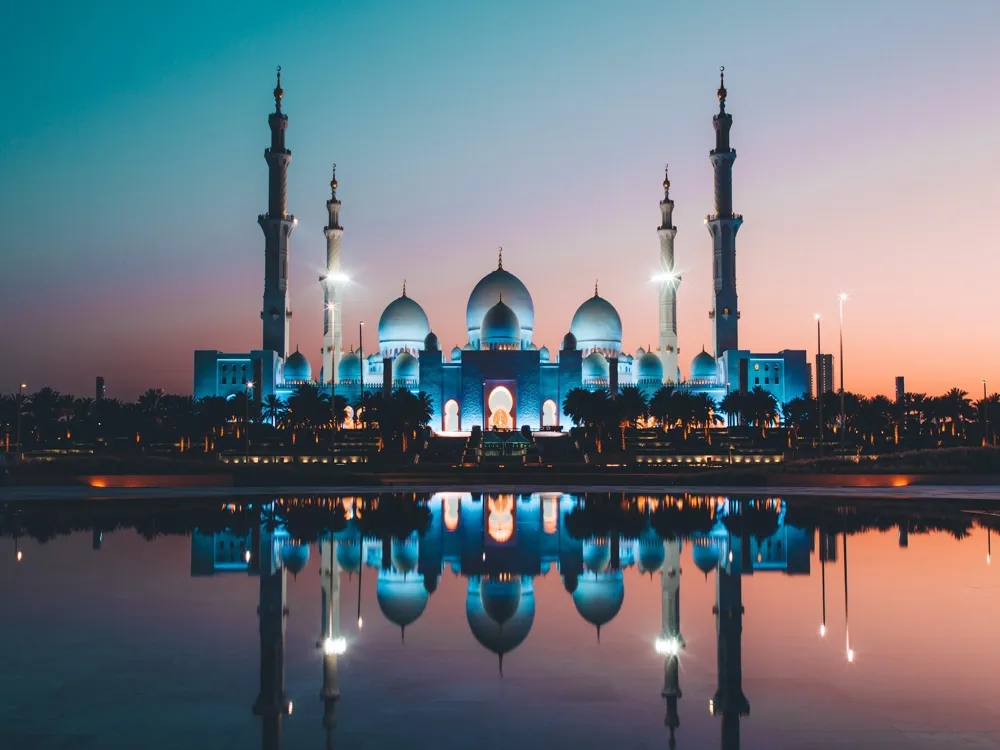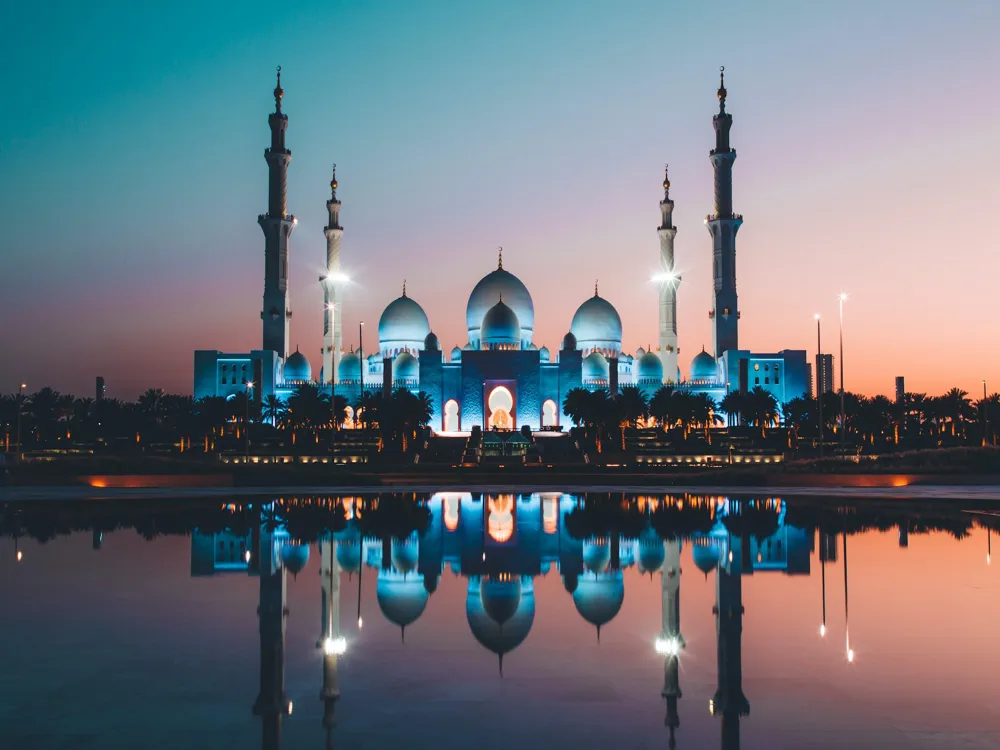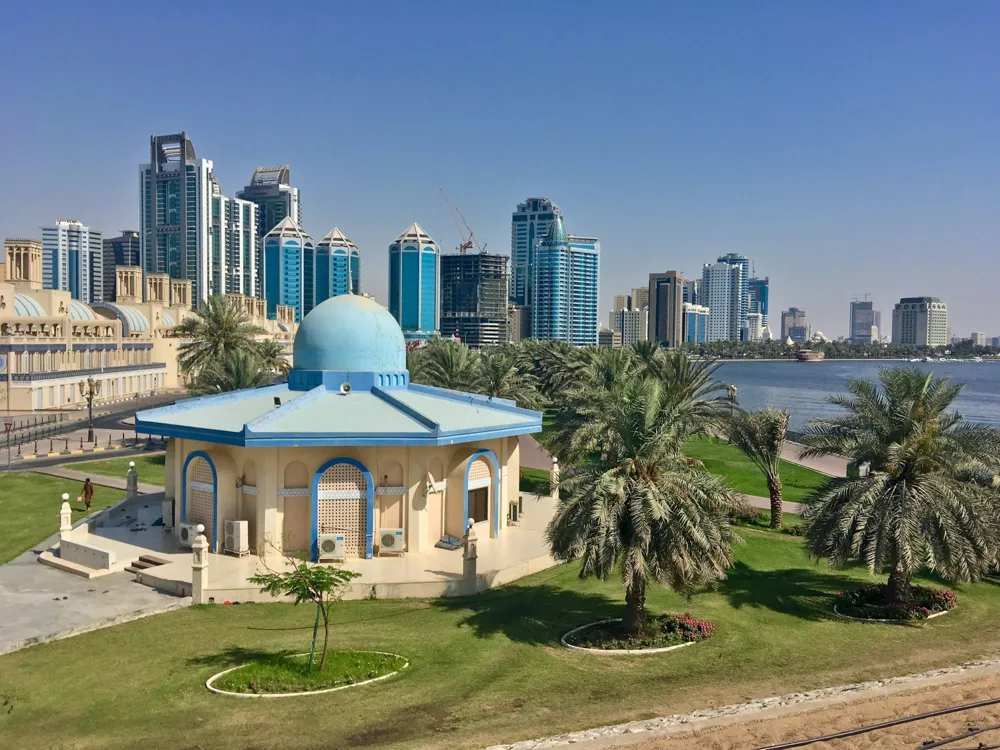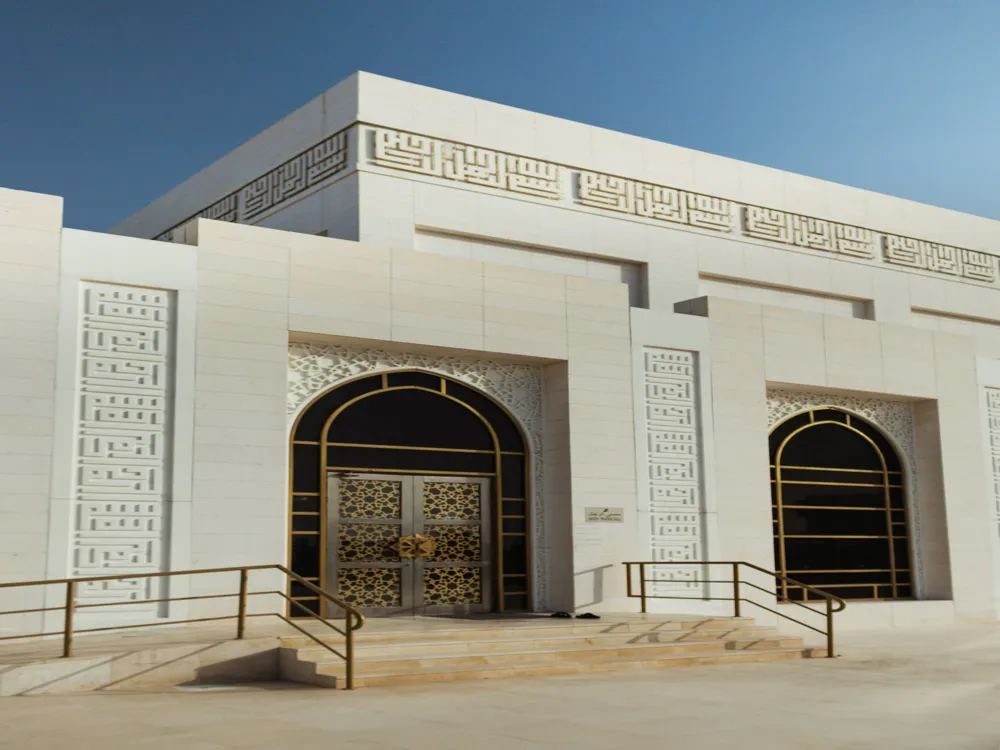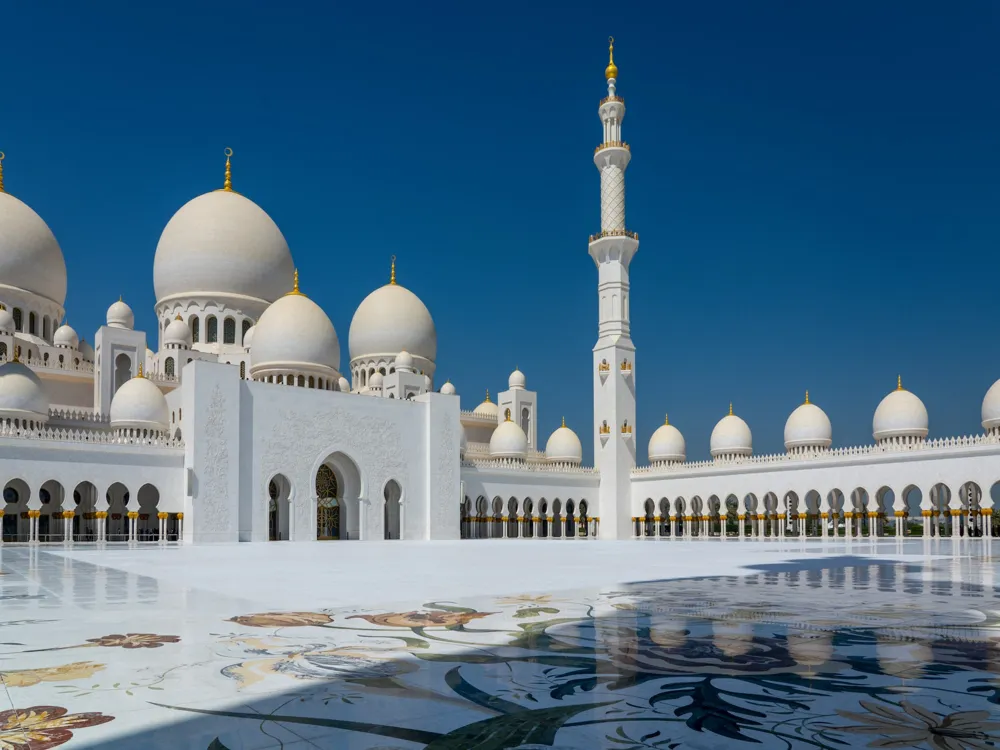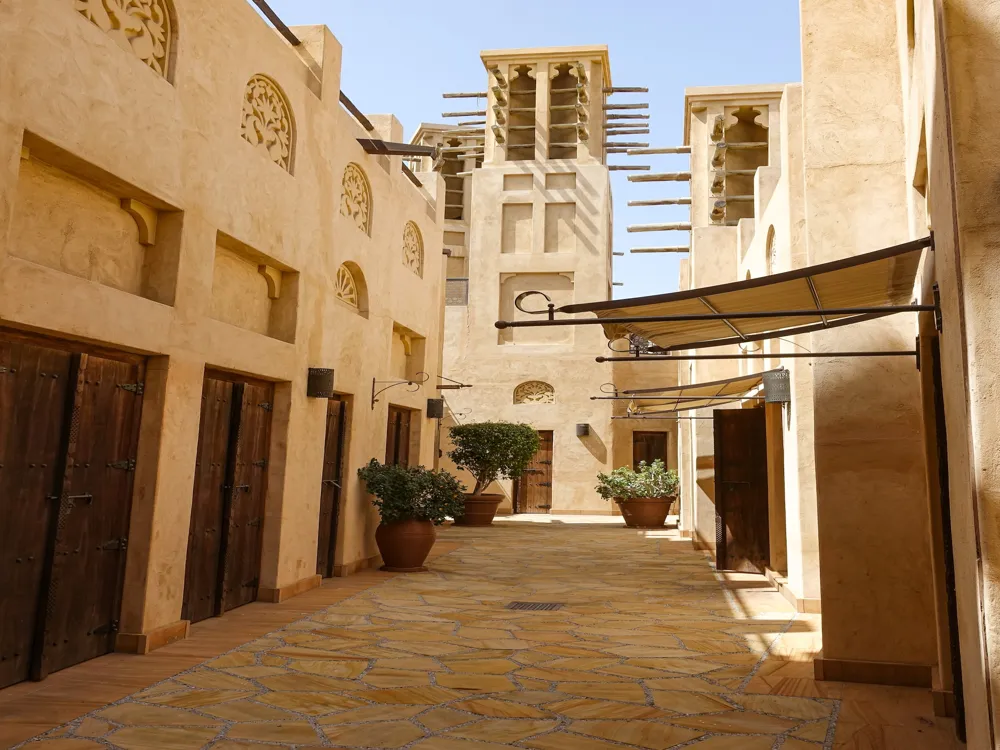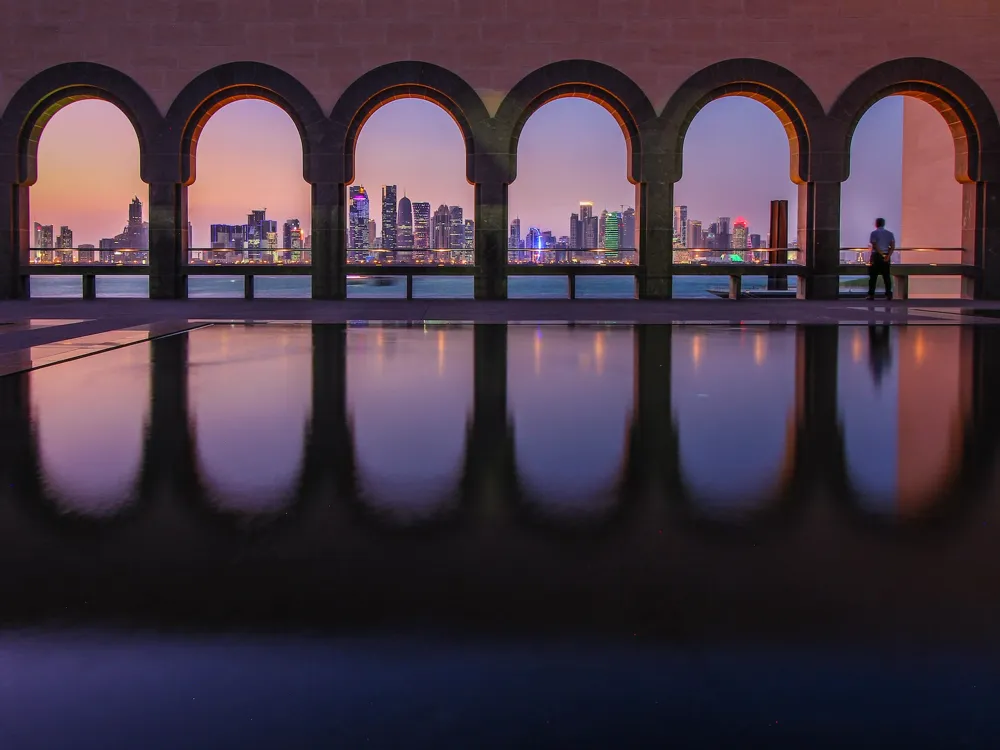Abu Dhabi, the capital city of the United Arab Emirates, is a blend of traditional charm and modern sophistication. Situated on an island in the Persian Gulf, it is known for its cultural heritage, luxurious lifestyle, and rapid urban development. Abu Dhabi’s history dates back to the 3rd millennium BC, and it has since evolved into a bustling metropolis. The city’s economy is primarily driven by oil exports, but it has diversified into various sectors, including tourism, finance, and aviation. Abu Dhabi is also renowned for its commitment to sustainability and environmental conservation. The city’s unique geographical location makes it a melting pot of diverse cultures and traditions, offering a rich experience for both residents and visitors. Abu Dhabi's architecture is a fascinating amalgamation of traditional Islamic designs and cutting-edge modern structures. The cityscape is adorned with impressive skyscrapers, grand mosques, and elegant villas. One of the architectural marvels is the Sheikh Zayed Grand Mosque, an epitome of Islamic art and craftsmanship, featuring 82 domes, over 1,000 columns, and 24-carat gold gilded chandeliers. Another iconic structure is the Emirates Palace, a luxurious hotel that combines Arabian splendor with modern amenities. The Louvre Abu Dhabi, designed by renowned architect Jean Nouvel, reflects the city’s cultural aspirations, with its unique geometric dome structure. The city also houses sustainable buildings like Masdar City, a planned city project that focuses on renewable energy and green technology. Abu Dhabi’s architecture not only showcases its rich heritage but also its ambition to be a global leader in innovation and design. While Abu Dhabi is a cosmopolitan city, it is important to respect local customs and dress modestly, especially when visiting religious sites. Opt for clothing that covers the shoulders and knees. Traditional attire like the 'Abaya' for women and 'Kandura' for men can also be worn. The ideal time to visit Abu Dhabi is between October and April when the weather is cooler. Summers can be extremely hot and humid, making outdoor activities uncomfortable. Abu Dhabi has strict laws that tourists should be aware of. Public displays of affection are frowned upon, and consumption of alcohol is restricted to licensed venues. It’s also advisable to learn some basic Arabic phrases to show respect to the local culture. Abu Dhabi has a well-developed public transportation system, including buses and taxis. Renting a car is also a popular option for tourists. Always carry a map or a GPS device when exploring the city. While Abu Dhabi city is mesmerizing, the surrounding areas like the Arabian Desert, Al Ain, and the Liwa Oasis offer unique experiences. Desert safaris and oasis visits are highly recommended. Abu Dhabi is easily accessible from various parts of the world. The Abu Dhabi International Airport is well-connected with major international cities. There are also road connections from neighboring emirates and countries. For those traveling by sea, Abu Dhabi has a cruise terminal at Zayed Port. Once in the city, there are plenty of options for internal transportation, including taxis, buses, and car rentals. The city’s infrastructure caters to the convenience of travelers, making it an easily navigable destination. Read More:Overview of Abu Dhabi
Architecture of Abu Dhabi
Tips When Visiting Abu Dhabi
Dress Appropriately
Best Time to Visit
Local Laws and Etiquette
Transportation Tips
Explore Beyond the City
How To Reach Abu Dhabi
Etihad Towers
Abu Dhabi
₹ 23,000 onwards
View abu-dhabi Packages
Weather :
Tags : Monument
Timings : OPen 24 hours
Time Required : 2-3 hours
Planning a Trip? Ask Your Question
Abu-dhabi Travel Packages
View All Packages For Abu-dhabi
Top Hotel Collections for Abu-dhabi

Private Pool

Luxury Hotels

5-Star Hotels

Pet Friendly
Top Hotels Near Abu-dhabi
Other Top Ranking Places In Abu-dhabi
View All Places To Visit In abu-dhabi
View abu-dhabi Packages
Weather :
Tags : Monument
Timings : OPen 24 hours
Time Required : 2-3 hours
Planning a Trip? Ask Your Question
Abu-dhabi Travel Packages
View All Packages For Abu-dhabi
Top Hotel Collections for Abu-dhabi

Private Pool

Luxury Hotels

5-Star Hotels

Pet Friendly





